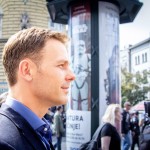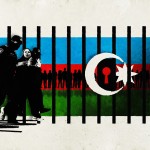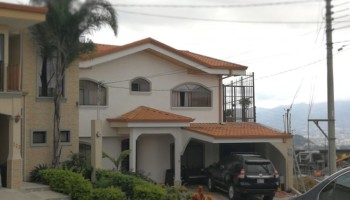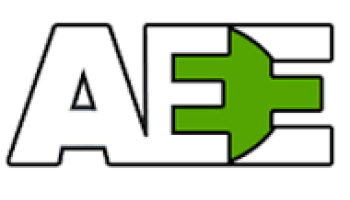Bout is widely known for using his massive fleet of airplanes (and a large network of front companies) to deliver weapons, ammunition and military machinery to various vicious sides of various vicious wars in Africa and elsewhere throughout the 1990s. Earlier this decade, the UN banned Bout from doing business with UN member states, and the US banned him from doing business in the US. While the business bans and asset seizures didn’t get Bout – what led to his arrest in March 2008 was an undercover DEA job that convinced Bout he was selling weaponry to Colombian guerrillas – the bans have led to the new charges.
Three years ago, according to the DEA, a front company controlled by Bout and Chichakli contracted to buy two Boeings from American companies. It allegedly then used more front companies to transfer more than $1.7 million through New York banks into other US bank accounts. Besides being charged with violating the business ban, Bout and Chichakli were also charged with money laundering conspiracy, wire fraud conspiracy and six counts of wire fraud.
Could the new charges pry Bout out of Thailand, where a court last August ruled against his extradition to the US? Bout expert Doug Farah thinks so:
The charges may be used to try give the Thai court more reason to authorized Bout's extradition to the United States. It will also certainly make Chichakli, who helped Bout set up his operations in the UAE in the 1990s while acting as his accountant, a less mobile figure.
If the US sends Thailand another extradition request, Bout could face a whole new extradition process, a Thai official told VOA. Chichakli, meanwhile, told the AP that the charges were “absurd” and “crazy,” and said he is willing to stand trial in the US to prove his innocence. Bout has for years denied involvement with arms trafficking.
Saric Case Follow-up
The ongoing saga involving fugitive suspected cocaine kingpin Darko Saric apparently turned into some minor violence in the Montenegrin capital last week, when opposition leader Nebojsa Medojevic was attacked in front of his building and told to stop talking about a prominent businessman. It was unclear whether Medojevic suffered injuries in the attack, which apparently was the doing of a person around the age of 30 who tried to hit Medojevic.
Medojevic had earlier told a press conference that the businessman, Branislav Micunovic, is a main power broker in Montenegro and would be instrumental in handing over a certain suspected cocaine dealer who might be hiding there.
“All things considered, we should bow down to Micunović and beg him to hand Šarić over,” Medojević had said at a press conference.
The attack aside, the question on the cocaine case is: are Montenegrin leaders protecting suspected international drug dealer Darko Saric? Saric is wanted in Serbia over his suspected involvement in an international cocaine smuggling ring that Serbian police and the DEA disrupted in Uruguay last October. Serbian organized crime prosecutor Miljko Radisavljevic said last week he wasn’t ruling out the possibility that Saric was hiding in Montenegro. Serbian paper Blic reported that the DEA (which conducted the Uruguay sting with Serbian authorities) located Saric in northern Montenegro. Serbian paper Politika placed Saric at a seaside resort on the Montenegrin coast.
Montenegrin police said Sunday in a statement that Saric is not in the country. Prime Minister Milo Djukanovic also said last week that Montenegro won’t take orders from other countries when it comes to fighting organized crime, a barb aimed at Serbia.
Meanwhile, Slovakia is investigating how Saric managed to get a Slovak passport in 2006. And Serbia’s special court ruled last week to temporarily seize all Saric’s assets in Serbia, including a nightclub in Kragujevac and buildings in Belgrade, Novi Sad and other towns in Serbia.
Region: Dual Citizens Under Fire
After months of disturbing news from Bosnia, finally there’s something good to report: By the end of this month, Bosnia will have agreements with Croatia and Serbia that end the ridiculous impunity granted to criminals who hold dual citizenship. Loads of Bosnians also have citizenship in neighboring Croatia and Serbia, which for years has meant that convicted Bosnian criminals with dual citizenship could zip over the border into his Croatian or Serbian motherland without worrying about pesky extraditions, further court trials or jail time. In one of the more audacious examples, ex-presidency member Ante Jelavic fled to Croatia in 2005, just one day before he was sentenced to 10 years in prison for embezzlement and other economic crimes. And there he (mostly) stayed. But that’s going to change, according to ISN:
On 10 February, the justice ministers of Bosnia and Croatia signed an agreement calling for anyone sentenced before a court in either country, regardless of which they reside in, to serve out sentences in either. Effectively, this means that if a convicted criminal is sentenced by a Bosnian court to a term in prison, the convicted will no longer be able to seek safe haven in Croatia, but will be obliged to serve out the term there.
Bosnia and Serbia are slated to sign a similar agreement later this month.
Ikea Fires 2 Execs over Russia Corruption
Swedish furniture maker Ikea fired two executives last week for letting a contractor bribe an electric company official in Russia. The company, which is a prominent critic of Russian corruption, apparently fired the executives because they agreed to a contractor’s plan to pay the bribe, which the New York Times reported had to do with electricity supplies at two Ikea locations in St. Petersburg.
Electricity and bribery have long been headaches for Ikea, which has about 12 stores in the Russian Federation. Local utility companies demanded bribes before they’d turn on the power at new locations; Ikea simply bypassed the electric companies by renting generators instead. Then it turned out that Ikea was getting gouged by a rental company – which was charging prices well above market rates, and paying bribes to the store’s Russian generator manager. Ikea was in court as recently as last fall trying to sort out that mess. Last summer, Ikea’s Russia director also announced that the company would halt new investment in Russia because of the “unpredictability of administrative processes,” which the press widely interpreted as a euphemism for corruption. (Ironically, the same Russia director was one of the executives fired last week.)
Though in this most recent case, the NYT reported that “the revelation of the lapse…is deeply troubling for the company,” it seems to me that Ikea is upholding its corruption-busting reputation by firing the executives, even though neither exec was himself accused of personally paying bribes. It would be more troubling if the company kept it quiet or, worse, started to hand over bulging envelopes to Russian utility companies.
Other News of Corruption and the People's Opinion In other business news, an American lawyer said last week that he’d left Russia because he fears the “mafia” police.
(Jamison) Firestone, 44, a U.S. citizen and former board member of the American Chamber of Commerce in Russia, said Interior Ministry officials made two attempts to obtain $21 million in taxes that a company he’s a director of paid to the government. He said the perpetrators forged his signature and corporate seals to seek tax rebates, similar to the $230 million in claims made by funds expropriated from Hermitage Capital Management, a $1 billion investment firm run by his client William Browder.
Russians apparently share Firestone’s sentiments about their police. A poll last week revealed that 81 percent of Russians believe that abuse and corruption are a serious problem in the Interior Ministry. Also last week, Russian President Dmitry Medvedev acknowledged police problems, noting that officials logged 15,000 complaints of police corruption last year, and noting that 2,000 murders and attempted murders go unsolved in every year in Russia. The question is whether any of this will translate into meaningful reforms.
FATF Fingers 28 Countries As Money Laundering Risks
An international money-laundering watchdog last week warned investors and financial institutions that deal with Iran to watch their dealings closely to protect themselves from money laundering and/or terrorist financing emanating from the country. The 35-member Financial Action Task Force (FATF) also accused 27 other countries of greasing the wheels of worldwide money laundering, but activists noted that the group didn’t focus on any wealthy countries that facilitate money laundering. Here’s Global Witness’s take:
"This list is a welcome move by the FATF and will put significant pressure on the named countries to take money laundering seriously," said Anthea Lawson, a campaigner with Global Witness. "However, the rich countries at the heart of the FATF need to get their own house in order and ensure that they too are meeting its standards".
The task force has reverted to type by focusing mostly on poorer countries, while ignoring the substantial loopholes in the anti-money laundering systems of many rich jurisdictions. No countries have fully met the FATF standard, not even the United States, which has led the global campaign against dirty money.
But a particularly egregious type of money laundering has little to do with bank accounts or offshore secrecy. Cocaine and opium kingpins in Colombia and Afghanistan, for example, have apparently used trade-based fraud – trickery with invoices involving high-dollar goods and dubious free trade zones – to launder drug money for years. Refrigerators and televisions reshipped from Dubai and Panama aren’t as sexy as offshore bank accounts and front companies, but the practice launders hundreds of billions of dollars every year. Last week, a US Treasury agency told the financial industry it should watch out for “red flags” like third-party payments and amended letters of credit, and file what’s called a suspicious activity report with the agency if there might indeed be some suspicious activity going on.
And lastly, a French-American concern joined the ranks of companies that have been fined recently under a 33-year-old US law that forbids companies to pay bribes overseas. Telecom multinational Alcatel-Lucent apparently set aside $125.5 million last quarter to settle allegations of bribery in several countries, including Costa Rica, Taiwan and Kenya.
Italy Drafts Anti-Corruption Law
A draft law that would increase penalties for public-sector corruption was cobbled together last week by Silvio Berlusconi’s cabinet, in reaction to a new corruption scandal involving Italy’s disaster relief chief, the inflation of construction contracts for last summer’s G-8 summit, and the favors thought to have been exchanged for those contracts.
Berlusconi is himself is facing two or three corruption trials. And the state auditor warned in a report last week that public corruption cases increased 229 percent last year from 2008. But an opposition party leader rubbished the draft law as “the latest bit of electoral publicity” in the run-up to regional elections next month.





